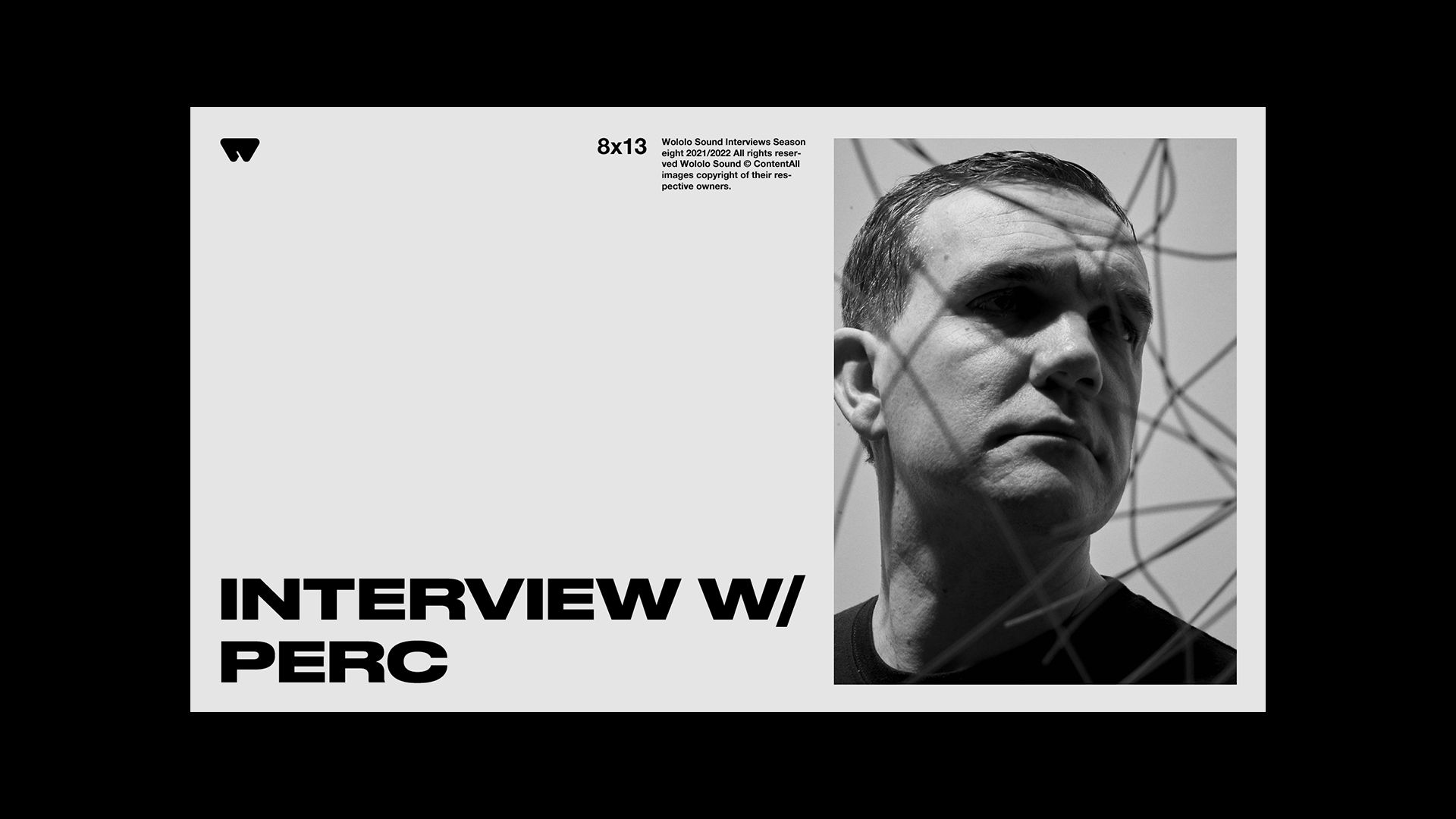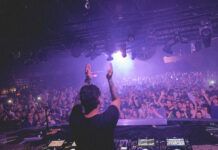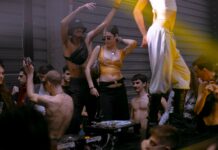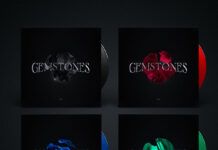El artista británico charla con nosotros tras el lanzamiento de su nuevo EP ‘Greed Dance’, estrenado en su propio sello Perc Trax
En la decimotercera entrevista de nuestra octava temporada nos sentamos a hablar con una de las piezas más destacada del movimiento techno del siglo 21. El británico Perc lleva en la industria más de 20 años, desarrollando un sonido muy característico durante el proceso de su carrera, logrando sacar música en sellos como CLR, Kompakt, Drumcode, Stroboscopic Artefacts o Ovum y actuando en lugares como Fabric, Space Ibiza, Berghain . Desde el año lidera su sello Perc Trax en donde ha acogido los trabajos de destacados artistas como Ansome, Manni Dee, Scalameriya o I Hate Models. Vamos con las preguntas.
WS: Antes de hablar de tu momento actual queremos saber cómo fueron tus primeros días en la industria, ¿cómo fueron tus inicios? Al haber nacido en UK, ¿cómo el sonido británico ha influido a tu sonido?
P: Empecé cuando estaba en la universidad haciendo prácticas en algunos sellos discográficos, estudios de grabación y locales de Londres y luego, cuando me gradué en la universidad, empecé a trabajar como gerente de un sello en una empresa de distribución especializada en lanzamientos de techno. Después trabajé para algunos sellos más hasta que mi música como Perc fue lanzada en discográficas más grandes y esto me llevó a dejar mi trabajo diario y empezar con la producción, ser DJ y dirigir Perc Trax a tiempo completo. En aquel momento fue una gran apuesta para mí y hubo momentos difíciles al principio, pero mirando atrás fue la mejor decisión que he tomado. El sonido británico siempre me ha influido, desde el rave y el hardcore hasta el techno británico, el jungle y el drum & bass. En una ciudad como Londres, la música electrónica está a tu alrededor, no tienes que buscarla, está en todas partes.
WS: Before we talk about your current situation we want to know what your early days in the industry were like. How were your beginnings? As you were born in the UK, how has the British sound influenced yours?
P: I started off when I was at university doing internships at some London record labels, recording studios and venues and then when I graduated from university I started working as a label manager at a distribution company that specialised in techno releases. After that I worked for a few more labels until my music as Perc was released on some bigger labels and this led to me quitting my day job and doing production, DJ-ing and running Perc Trax full time. At the time it was a big gamble for me and there were some tough times at the start but looking back it was the best decision I ever made. The British sound has always influenced me, from rave and hardcore to UK techno, jungle and drum & bass. In a city like London electronic music is all around you, you don’ t have to search for it, it is everywhere you go.
WS: Hablando de Reino Unido, ¿cómo consideras que se encuentra su escena? ¿Cuáles son sus puntos fuertes a destacar?
P: La escena británica cambia y evoluciona tan rápido como la de cualquier otra ciudad importante del mundo. Los clubes y los promotores van y vienen muy rápido, pero eso la mantiene fresca y hace que todos los grandes nombres estén atentos. En este momento creo que es bueno. Algunos espacios nuevos, como Fold, se han consolidado recientemente y el público es tan enérgico, apasionado y abierto como siempre. El público es el principal punto fuerte de la escena londinense, además de la pasión y la devoción de los promotores que organizan los eventos.
WS: Talking about the UK, how do you consider the scene to be right now? What are its strengths?
P: The UK scene changes and evolves as fast as any other major city scene in the world. Clubs and promoters come and go very quickly, but that keeps it fresh and keeps all the established names on their toes. At the moment I think it’s good. Some new spaces such as Fold have really established themselves recently and the crowds are as energetic, passionate and open-minded as ever. The crowds are the London scenes main strength plus the passion and devotion of the promoters organising events.
WS: Te hemos preguntado por tus inicios y ahora queremos saber cómo tu estilo ha ido cambiando durante el desarrollo de tu carrera. Empezaste a publicar música allá por 2001, llegando a estrenar, con el tiempo, música en sellos como Kompakt o Drumcode, los cuales difieren de tu actual estilo. ¿En qué se diferencia el Perc de hoy del de hace 5,15 y 20 años?
P: Siempre me ha gustado pensar en mi música como una evolución gradual a lo largo de los años. No persigo las tendencias ni sigo lo que vende bien en Beatport o dejo que eso influya en el tipo de música que hago. Hago lo que me apetece en cada momento y, por supuesto, esto se ve reflejado en mis sesiones, ya que me encanta pinchar mis propios temas en mis sets. El sonido Perc siempre ha consistido en ofrecer ruido y experimentación sónica en un formato que funciona bien en club. Si miras un tema como ‘Up’ en Kompakt en 2007, la idea que hay detrás es la misma que la de ‘Snare’ en Perc Trax en 2020. Ritmos contundentes que actúan como base para un elemento de ruido que se desarrolla lentamente.
Mentalmente puedo situar mi música en ciertas épocas o periodos, principalmente debido a los sellos con los que trabajaba en ese momento, ciertos bloques de tiempo en los que me centraba y trataba de perfeccionar un determinado grupo de elementos en mi trabajo. Mi música se ha vuelto poco a poco más rápida y ahora hago menos temas de broken beat, pero podrían volver en algún momento. Hace años, cuando pinchaba en B2B con Truss, la gente pensaba que la velocidad a la que tocábamos al final de nuestros sets era una locura. Terminábamos hasta 150 BPM cuando mucha gente pinchaba entonces a 127 – 130 BPM. Ahora todo el mundo pincha más rápido. Yo sólo hago lo que quiero y lo que me parece auténtico. Una vez que empiezas a perseguir el sonido de otro productor o DJ, siempre serás el segundo mejor.
WS: We’ve asked you about your beginnings and now we want to know how your style has changed during the development of your career. You started releasing music back in 2001, eventually releasing music on labels like Kompakt and Drumcode, which differ from your current style. How does the Perc of today differ from the Perc of 5, 15 and 20 years ago?
P: I always like to think of my music as a gradual evolution over the years. I don’ t chase trends or follow what is selling well at Beatport and then let that influence the kind of music I make. I make what I want at any particular time and of course it has to have some connection to my DJ sets as I love to play my own tracks out in my sets. The Perc sound has always been about delivering noise and sonic experimentation in a format that works well in a club. If you look at a track like ‘Up’ on Kompakt back in 2007 the idea behind it is the same as ‘Snare’ on Perc Trax in 2020. Driving rhythms acting as a foundation for a slowly developing noise element. Mentally I can put my music into certain eras or periods, mainly due to the labels I was working with at the time, certain blocks of time where I was focusing and trying to perfect a certain group of elements in my work. My music has slowly gotten faster and I make less broken beat tracks right now but they could come back at some point. Years ago when I played B2B with Truss people thought the speed we were playing at the end of our sets was crazy. We were finishing at up to 150 BPM when a lot of people were playing at 127 – 130 BPM then. Now everyone is playing faster. I just do what I want and what feels true to me. Once you start chasing the sound of another producer or DJ you will always be second best.
WS: Nos acabas de presentar tu nuevo EP ‘Greed Dance’, siendo tu primer EP en 14 meses. Un lanzamiento protagonizado por tu estilo característico, enfocado en el techno enérgico y en los sonidos estridentes. ¿Qué ha influido en la creación de este nuevo trabajo? Hemos leído que has conseguido superar un bloqueo creativo, ¿cómo te sentiste durante este proceso?
P: A menudo tengo lo que creo que son bloqueos creativos, períodos en los que no termino ningún tema ni se me ocurren nuevas ideas, pero me he dado cuenta de que son sólo períodos de aprendizaje, para llevar tu arte a un nivel superior. No se trata de cuántos temas o remixes terminas en un mes, sino de lo que has aprendido y de cómo has avanzado ese mes. ‘Greed Dance’ es definitivamente mi EP de la cuarentena, ya que aunque ‘Fire In Negative’ se publicó durante la pandemia, el otro lo compuse antes. Con ‘Greed Dance’ tengo la sensación de que la presión crece y se libera, y de que se acumula la frustración en las canciones. El EP lo empecé a escribir en las Navidades del año pasado, en un momento en el que no teníamos ni idea de cuándo volverían a abrir los clubes y los eventos y cuándo volvería la vida a la normalidad. Puedo escuchar mi frustración hacia ciertos sectores de la industria dance en ‘Greed Dance’, un aumento de la presión en ‘Resistor’ y una liberación final de esa presión en ‘240 Volts’.
WS: You have just released your new EP ‘Greed Dance’ your first EP in 14months. A release featuring your unique style, focusing on energetic techno and raucous sounds. What influenced the creation of this new work? We’ve read that you’ve managed to overcome a creative block, how did you feel during this process?
P: I often have what I think are creative blocks, periods where I don’t finish any tracks or come up with any new ideas, but I’ve come to realise that these are just periods of learning, to take your craft to a higher level. It’s not about how many tracks or remixes you finish in a month, it’s about what you learnt and how you advanced that month. ‘Greed Dance’ is definitely my lockdown EP, as even though ‘Fire In Negative’ was released during lockdown, it was written before it. With ‘Greed Dance’ I feel a sense of pressure growing and being released and a build up of frustration in the tracks. The EP was started at Christmas last year at a time when we had no idea when club and events would open again and when life would get back to normal. I can hear my frustration at certain sections of the dance music industry in ‘Greed Dance’, a building of pressure in ‘Resistor’ and a final release of that pressure in ‘240 Volts’.
WS: Además de este nuevo EP, en el último año nos has presentado varias originales, un remix y un EP colaborativo con Slam. ¿Qué tal han funcionado estos lanzamientos? ¿Cómo fue la experiencia de compartir estudio con uno de los dúos más veterano de la escena?
P: Esta colaboración se llevó a cabo durante los últimos momentos de cuarentena en Reino Unido, así que nunca nos conocimos ni trabajamos juntos en el mismo estudio, aunque sí nos hemos encontrado en el pasado en conciertos, etc. Intercambiamos sonidos online y nos turnamos para trabajar en los arreglos de ambos temas. Es un lanzamiento y una colaboración que nunca esperé que se produjera y fue definitivamente un resultado del tiempo extra de estudio que todos teníamos cuando los eventos en los clubes estaban prohibidos. Los dos temas que surgieron son diferentes a lo que yo haría para Perc Trax y es genial estar incluido en un proyecto que cuenta con tantos otros grandes artistas.
WS: Besides this new EP, in October you presented ‘Louder Than Chaos Vol.2’ EP with Slam. How was the experience of sharing a studio with one of the most veteran duos of the scene?
P: This collaboration was done during the recent UK lockdowns, so we never actually met or worked together in the same studio, though we have met in the past at gigs etc. We swapped sounds online and took turns to work on the arrangements of both tracks. It’s a release and collaboration I never expected to happen and it was definitely a product of the extra studio time we all had when club events were forbidden. The two tracks that emerged are different to what I would do for Perc Trax and it’s cool to be included in a project that features so many other great artists.
WS: Retomamos tu nuevo EP, del cual debemos destacar también su parte artística. ¿Consideras que es fundamental, actualmente, juntar un buen apartado musical con un apartado creativo característico?
P: Sí, por supuesto. Para que un artista me impresione o simplemente me interese tiene que haber una combinación de habilidades técnicas, innovación e individualidad. No basta con tener solo uno de estos atributos. Me gustan los artistas que saben lo que quieren conseguir, tanto musical como visualmente, y cómo todo esto se relaciona con su forma de actuar como DJ o en directo. No quiero techno del montón a base de sample packs, sino temas que tengan espíritu y personalidad. Hoy en día, gran parte del techno suena como una colección de samples comprados que se meten en Ableton y se montan como un kit de Lego. Estos temas se huelen a la legua y, aunque puedan sonar bien en un club, no tienen ningún valor duradero y no me interesan. Si voy a invertir en la masterización, el diseño, la fabricación y la promoción de un lanzamiento, un proceso que puede durar hasta un año, es obvio que las pistas tienen que tener más longevidad que solo un fin de semana de reproducciones.
WS: Returning to your new EP, of which we must also highlight its artistic side, do you consider that it is essential, nowadays, to combine a good musical component with a characteristic creative component?
P: Yeah of course. For an artist to impress or even just interest me there needs to be a combination of technical skills, innovation and individuality. Having just one of these attributes is not enough. I like artists who know what they want to achieve both musically and visually and how all this ties in with how they perform as a DJ or live act. I don’t want sample pack cookie cutter techno, I want tracks that have spirit and personality. So much techno these days sounds like a collection of bought samples dropped into Ableton and put together like a Lego kit. You can smell these tracks a mile off and even if they might sound good in a club they have no lasting value and are of no interest to me. If I am going to invest in the mastering, design, manufacturing and promotion of a release, a process that can take up to a year then it’s obvious that the tracks have to have more longevity than a single weekend of DJ plays.
WS: En cuanto a tu sello, ¿qué le dirías a alguien que quiere estrenar música en Perc Trax? ¿Qué tienen que tener sus temas para poder salir en tu sello o qué sean pinchados por ti?
P: Para que un tema suene en mis sets tiene que tener energía y cierta actitud. No tiene que ser muy rápido o duro, pero escucho y busco un sentimiento. Muchos de los temas que pincho son de productores menos conocidos, no tengo ningún problema en pinchar temas de grandes artistas, pero a veces hay algo más único e individual en temas de gente de la que nunca he oído hablar. Si hay un productor cuyos temas creo que pincho mucho en mis sets, a menudo le pido que haga algo para Perc Trax. Perc Trax sigue abierto a las demos y escucho todo lo que me envían. Si llega la demo adecuada que encaje en Perc Trax pero que no suene como alguien que ya está en el sello, la firmaré y publicaré con mucho gusto. Dicho esto, recibo al menos 350-500 demos al año y publico unos 6 discos en Perc Trax cada año, así que tenedlo en cuenta cuando enviéis vuestra demo a un sello como Perc Trax.
WS: Regarding your label, what would you say to someone who wants to release music on Perc Trax? What do their tracks have to have to be on your label or be played by you?
P: For a track to be played in my DJ sets it has to have energy and a certain attitude. It doesn’t have to be really fast or hard but I’m listening and searching for a feeling. A lot of the tracks I play are by lesser known producers, I have no problem playing track by really big artists but sometime there is something a bit more unique and individual in tracks by people I’ve never heard of. If there is a producer whose tracks I find that I’m playing a lot in my sets then I often ask them to do something for Perc Trax. Perc Trax is still open to demos and I listen to everything that is sent to me. If the right demo comes along that would fit Perc Trax but doesn’t sound like someone already on the label I’ll happily sign and release it. That said I get at least 350 -500 demos a year and release maybe 6 records on Perc Trax each year, so please bear that in mind when sending label like Perc Trax your demo.
WS: Ya te hemos visto volviendo al ruedo con actuaciones en Boiler Room Toronto, Verknipt ADE, Intercell, Monasterio Rave…. ¿Cómo te has sentido al volver a sentir la energía del público? ¿Observas alguna diferencia en la pista con respecto a la vida antes del COVID-19?
P: Es genial estar de vuelta. De hecho, no me di cuenta de lo mucho que lo echaba de menos hasta que volví a estar delante del público. Recuerdo haber atravesado el abarrotado dancefloor de Hidden en Manchester para llegar a la cabina del DJ en el evento de Telehaus y recordar de repente lo intimidantes que pueden ser la oscuridad, el sistema de sonido y los estroboscópicos de un club. Es una atmósfera intensa, pero ahora me siento como en casa. Desde que he vuelto a actuar, el público está lleno de energía, y sin duda aún queda mucha por liberar. Espero que continúe así y que no volvamos a la situación anterior al covid, en la que algunos públicos de las ciudades más grandes, que acogen muchos eventos cada fin de semana, se mostraban indiferentes ante los sets que se pinchaban delante de ellos, incluso cuando era el cabeza de cartel del evento.
WS: We’ve already seen you getting back on the scene with performances at Boiler Room Toronto, Verknipt ADE, Intercell, Monasterio Rave….. How did it feel to have the energy of the crowd again? Do you notice any difference on the dance floor compared to life before COVID-19?
P: It’s great to be back. I actually didn’t realise how much I missed it until I was back in front of a crowd again. I remember walking through the packed dancefloor of Hidden in Manchester to get to the DJ booth at the Telehaus event and suddenly remembering how intimidating the darkness, soundsystem and strobes of a club can be. It’s an intense atmosphere, but it feels like home to me now. The crowds since I’ve been back gigging have been full of energy, there is definitely a lot of steam still to be let off. I hope it continues and we don’t get back to a situation like before Covid where occasionally some crowds in the bigger cities that host many events each weekend could sometimes be nonchalant about the acts playing in front of them even when it was the headliner of the event.
WS: También queremos saber tu opinión sobre la escena actual y sus tendencias. El trance ha dado mucho que hablar en su fusión con el techno, las influencias predominantes como las del gabber, hardcore, rave y ahora estamos viendo un retorno de lo mental. ¿Consideras que se ha saturado un poco la escena/mercado durante el confinamiento? ¿A dónde crees que se dirige el movimiento techno?
P: No soy un purista y estoy dispuesto a escuchar cualquier cosa nueva o cualquier combinación nueva de sonidos que exista, pero cuando la gente intenta pillar un atajo hacia el éxito tocando temas pop o trance que fueron grandes éxitos comerciales hace 20 años, me parece que es una forma de encubrir la falta de voluntad de trabajar duro y buscar música interesante, ya sea música nueva o joyas perdidas del pasado. Hay partes del abanico de sonidos hardcore que me gustan mucho, como muchos de los grandes kicks, pero otros elementos no me gustan mucho. Creo que ahora mismo hay una falta de control de calidad por parte de algunos sellos. Prefiero escuchar un recopilatorio VA con 8 grandes temas que uno con 20 o 30 o incluso más temas que sean mediocres. Es muy raro que un tema salga de uno de estos recopilatorios y se convierta en un éxito que la gente reproduzca durante años, y quizá por eso muchos productores guardan sus mejores temas para sus propios lanzamientos EP y dan sus canciones de segunda división a estos proyectos VA. Siempre he tenido la actitud de que si un tema mío no es lo suficientemente bueno para Perc Trax, tampoco lo es para otro sello. Por ejemplo, mi próximo tema ‘Safe As Fuck’ para Possession. Me encantaría tenerlo en Perc Trax, pero es bueno hacer algo de calidad para Possession después de la cantidad de apoyo que me han dado en el pasado.
WS: We also want to know your opinion about the current scene and its trends. Trance has been very popular in its fusion with techno, the predominant influences such as gabber, hardcore, rave and now we are seeing a return of the mental. Do you feel that the scene/market has become a bit swamped during lockdown? Where do you think the techno movement is heading?
P: I’m no purist and I’m up for hearing anything new or any new combination of existing sounds but when people try to take a shortcut to success by playing pop tracks or trance tracks that were huge commercial hits 20 years ago then to me it just seems a way of covering up an unwillingness to work hard and dig for interesting music, whether it’s new music or lost gems from the past. There are parts of the hardcore sound palette what I really like, such as a lot of the huge kicks, but some other elements I don’t really like. I think right now there can be a lack of quality control from some labels. I’d rather hear a VA compilation with 8 great tracks than one with 20 or 30 or even more average tracks. It is very rare that a track breaks out from one of these compilations and becomes a hit that people play for years to come and maybe because of this a lot of producers save their best tracks for their own EP releases and give their second division tracks to these VA projects. I’ve always had the attitude that if a track of mine isn’t good enough for Perc Trax then it’s not good enough for another label either. Take my forthcoming ‘Safe As Fuck’ track for Possession. I’d love to have that on Perc Trax but it’s nice to do something quality for Possession after the amount of support they have given me in the past.
WS: Hablando de esta escena saturada, ¿qué le dirías a un joven productor musical que acaba de empezar a hacer música para destacar en la escena actual?
P: En cierto modo, ahora es más fácil. Un nuevo artista tiene muchas maneras de conectar con sus posibles fans. Antes tenías que conseguir un disco firmado por un sello de vinilos o esperar que una de las grandes revistas de música dance escribiera sobre ti. Ahora hay muchas plataformas que puedes utilizar, pero esto significa que todo está saturado y es aún más difícil destacar entre la multitud y hacerse notar. Siempre doy consejos como “sé tú mismo y no copies a nadie”, pero ahora los artistas que más respeto no se limitan a hacer buena música o a pinchar grandes sets, sino que utilizan las redes sociales con sensatez, para informar a sus seguidores de lo que están haciendo, pero no se limitan a hacer spam con publicaciones sobre su estilo de vida. Si alguien enviara demos a Perc Trax y su Instagram estuviera lleno de fotos de ellos tomando un café o simplemente un selfie sin conexión con nada de lo que están haciendo musicalmente, entonces me haría desistir de trabajar con ellos. Querer tener un buen aspecto y presentarse visualmente de una manera en la que te sientas seguro es genial, pero la música siempre será lo primero para mí.
WS: Talking about that swamped scene, what would you say to a young music producer that just starting out to make music to stand out on the scene today?
P: Hmmm, in some ways it is easier now. A new artist has so many ways to connect with potential fans. In the past you had to get a record signed to a vinyl label or hope one of the big dance music magazines wrote about you. Now there are so many platforms that you can use but this means everything is saturated and it’s even harder to stand out from the crowd and be noticed. I always give advice like ‘be yourself and don’t copy anyone’ but now the artists I respect the most don’t just make great music or play great DJ sets but they use social media sensibly, to inform their supporters of what they are doing, but don’t just spam it with lifestyle posts. If someone was sending demos to Perc Trax and their Instagram was full of pictures of them having a coffee or just a selfie with no connection to anything they were doing musically then that would really put me off working with them. Wanting to look good and present yourself visually in a way that you are confident with is great, but the music will always come first for me.
WS: Por último, hablando de la escena techno, hay que destacar que en los últimos años hemos visto un aumento significativo de mujeres DJ. ¿Crees que ha habido un cambio de mentalidad en la industria debido a esto?
P: Una escena techno y dance más diversa, con una selección más amplia de DJs que se abren paso desde diferentes demografías y orígenes, sólo puede ser algo bueno a largo plazo. Atrae a una gama más amplia de aficionados a la música y a los clubes y aporta diferentes estilos y áreas de conocimiento musical. No puedo entender cómo alguien puede ver un inconveniente en ello.
WS: Finally, talking about the techno scene, we have to point out that in the last few years we have seen a significant rise of female DJs. Do you think there has been a mindset change in the industry because of this?
P: A more diverse techno and dance music scene with a more wider selection of DJs breaking through from different demographics and backgrounds can only be a good thing in the long term. It appeals to a wider range of music fans and clubbers and brings in different styles and areas of musical knowledge. I can’t really see how anyone can see a downside to that.
PREGUNTAS CORTAS/SHORT QUESTIONS:
¿Comida favorita?
Cambia todo el tiempo, actualmente mexicana o vietnamita
¿Club favorito?
Es imposible: Fold, Berghain, Tresor, Basement New York, Under Club Buenos Aires, ¡no puedo elegir uno!
¿Tu tema de cierre favorito?
Mi tema de cierre clásico es Paul Glazby – ‘Hostile’, pero intento cambiar mis canciones de cierre todo el tiempo.
¿Ciudad donde vivir?
Londres
¿Una canción no electrónica?
Últimamente escucho mucho a The Jam, así que algo como ‘Down In The Tube Station At Midnight’, pero cambio cada día.
Fav food?
It changes all the time, currently Mexican or Vietnamese
Fav club?
I’ve been listening to The Jam a lot recently so something like ‘Down In The Tube Station At Midnight’ – but it changes daily!
Your fav closing track?
I’ve been listening to The Jam a lot recently so something like ‘Down In The Tube Station At Midnight’ – but it changes daily!
A city to live?
London
A non electronic song?
I’ve been listening to The Jam a lot recently so something like ‘Down In The Tube Station At Midnight’ – but it changes daily!








